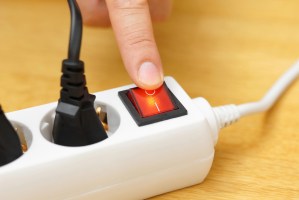Part of being a writer means accepting and dealing with feedback, some of which will be less than flattering. Being a writer means getting your feelings hurt, a lot. Trust me, I’ve been on the receiving end of it and have made bad decisions as a result, needing to defend myself, my work, and my ego. But don’t be like me, friends. Here’s how to deal with criticism/haters of your work.
Let’s begin.
Don’t Ever Engage
They say reviews are for the readers, which means they’re not for you. All you will do is make things awkward for the reviewer if you go ahead and address their honest review. It will come across as self-indulgent, maybe even a little bit obsessive, if you feel the need to address a negative review that wasn’t meant for your eyes in the first place.
Do authors take glimpses at their own reviews, even against good advice that says they maybe shouldn’t? Of course. The moment you see your book out there available for purchase, the first thing you’ll be thinking about is what people thought of it and how they reviewed it. I don’t begrudge you for indulging that desire to see what people think of your book—why wouldn’t you? And while I’d recommend you avoid looking at reviews if you can help it, I’m not so naïve as to believe it’s as easy as that.
Nevertheless, protect your sanity and your work by choosing not to respond to even the most inflammatory of reviews. Again, they’re not meant for you; they’re meant for fellow readers, to help them determine if your book is worth buying or not. While it sucks to receive negative feedback, think of addressing this negative feedback as you jumping into a private conversation that you were very much not invited to take part in. It’s not meant to hurt your feelings; it’s not meant for you at all.
Make It Hard For You to Find Reviews of Your Own Work

If you’ve got thick skin, good on you. Feel free to take a look at those reviews. Maybe you’ll find something helpful, something that can help you make improvements so you never get a negative review like that in the future. But if you’re the type whose entire month is ruined by a negative review, think carefully about how much you want to expose yourself to that kind of negativity about something you worked hard on.
Am I saying ignore any valid criticism of your work? No, of course not. If you feel you can get some useful advice from negative reviews, then by all means, check out those reviews, read those blog posts, see what people have to say. Just don’t go bookmarking your book in the store or making it super easy to access so you can see reviews all day, every day, at any time. After all, beta reads and editors are for you. Reviewers are for the reader.
If You Engage (Don’t, But If You Do…), Be Gracious About It
You probably shouldn’t engage with someone who wrote a negative review of your work. That being said, sometimes the temptation may strike, and there might be the rare occasion where it’s actually not frowned upon to address the reviewer directly. For example, if they go out of their way to tag you as the author or make it clear that they are looking for a response from you.
I tend to lean towards the idea that you shouldn’t take the bait either way. It speaks to some bad behavior on the reviewer’s part if they’re looking to provoke a reaction from you by tagging you in their negative review. As mentioned above, reviews are for the readers, not the writers. So there’s really no reason to tag you directly, and I’d recommend ignoring it if they do.
However, if you find that this tagged review is getting a lot of attention and you feel—against all good judgment—that you should respond, my advice is to be gracious about it. Thank the reviewer for their honesty, maybe politely call them out on the fact that they tagged you when they had no business doing so, and otherwise leave it well enough alone. Not everybody will be a fan of your work, and you don’t owe anyone an explanation.
Understand That Blowing Up At a Reviewer Will Backfire
Because there’s this unspoken rule that reviews are meant for readers and not reviewers, you are not exactly welcome in the review space of your book. I know it’s your book and you may feel entitled to respond accordingly, but just trust me: if you respond to negative reviews, expect backlash.
It’s just not a good look, man. It comes across as you scouring the internet for every bad review, looking to pick a fight with everyone who dared to have an opinion that didn’t favor you. The fact is, not everything will appeal to everyone, and while we’d all like to be able to say that literally everyone loves everything we create, there’s just too many humans on this planet with differing opinions and backgrounds for that to ever be reality. You do this long enough, you will get bad reviews. Don’t make it worse for yourself by going on the offensive. It might feel good for a moment, but you will come to regret it when the dust settles and you’re left looking very, very petty, and incapable of accepting criticism (valid or not).
There’s plenty of examples of authors snapping back at reviewers, usually to their own detriment. Feel free to correct me in the comments if this is not the case, but I believe that nothing good has ever come out of an author hitting back at reviewers. It can even be a career ruiner if the circumstances line up to create the perfect storm.
Just…just don’t do it, man.
You Can Vent, But Be Indirect/Blameless
If you do happen upon a review that hurts your feelings, that’s ok! It’s part of being a creator. And there’s nothing wrong with expressing that negative reviews don’t feel good. So long as you keep it general and don’t make a show of striking out at individual reviewers, there’s no problem with venting that you got negative reviews and it hurt to see. You’re only human. You can’t be expected to feel nothing when something you worked hard on for months or even years gets systematically crapped on by a stranger.
Just try not to leave a paper trail where your followers can find these negative reviews and go on the offensive on your behalf. It really sucks to receive a negative review, and those close to you might be tempted to go on a crusade for you. That’s why it tends to be best to ignore reviews entirely if you can help it, lest you get caught up in some needless drama because you or someone close to you happened upon a negative review and decided to start some conflict.
Nevertheless, I think it’s fine to indirectly vent about it. It can be upsetting, and you’re a person with feelings too. Writing a book isn’t easy, and though I’ve never written a book myself, I do know the sharp pain of receiving negative feedback that makes you feel like an inadequate writer. It might feel good to be able to vent, especially to other writers who have been where you are and understand the hurt that a bad review can bring you.
But hey, maybe I just have thin skin.





